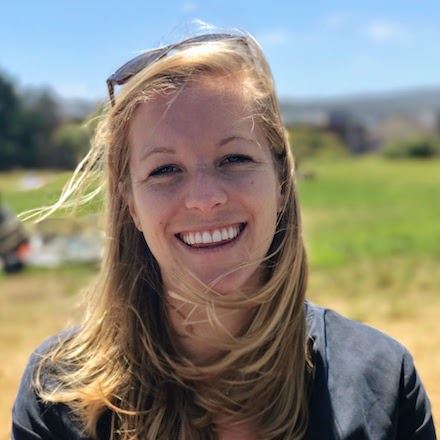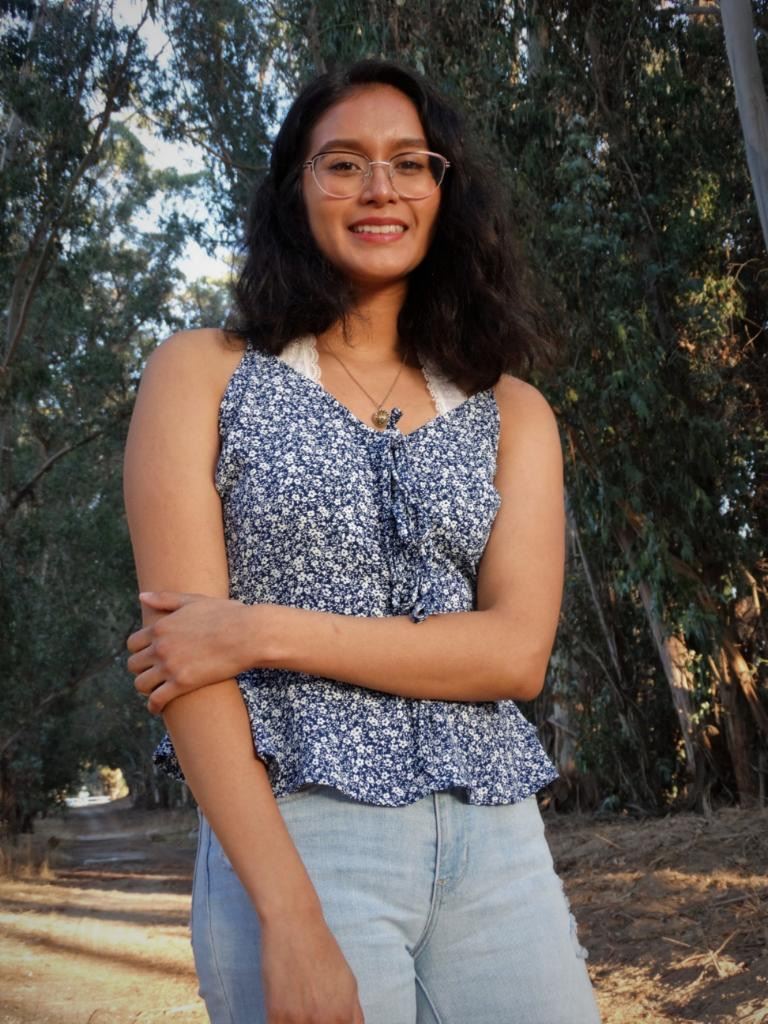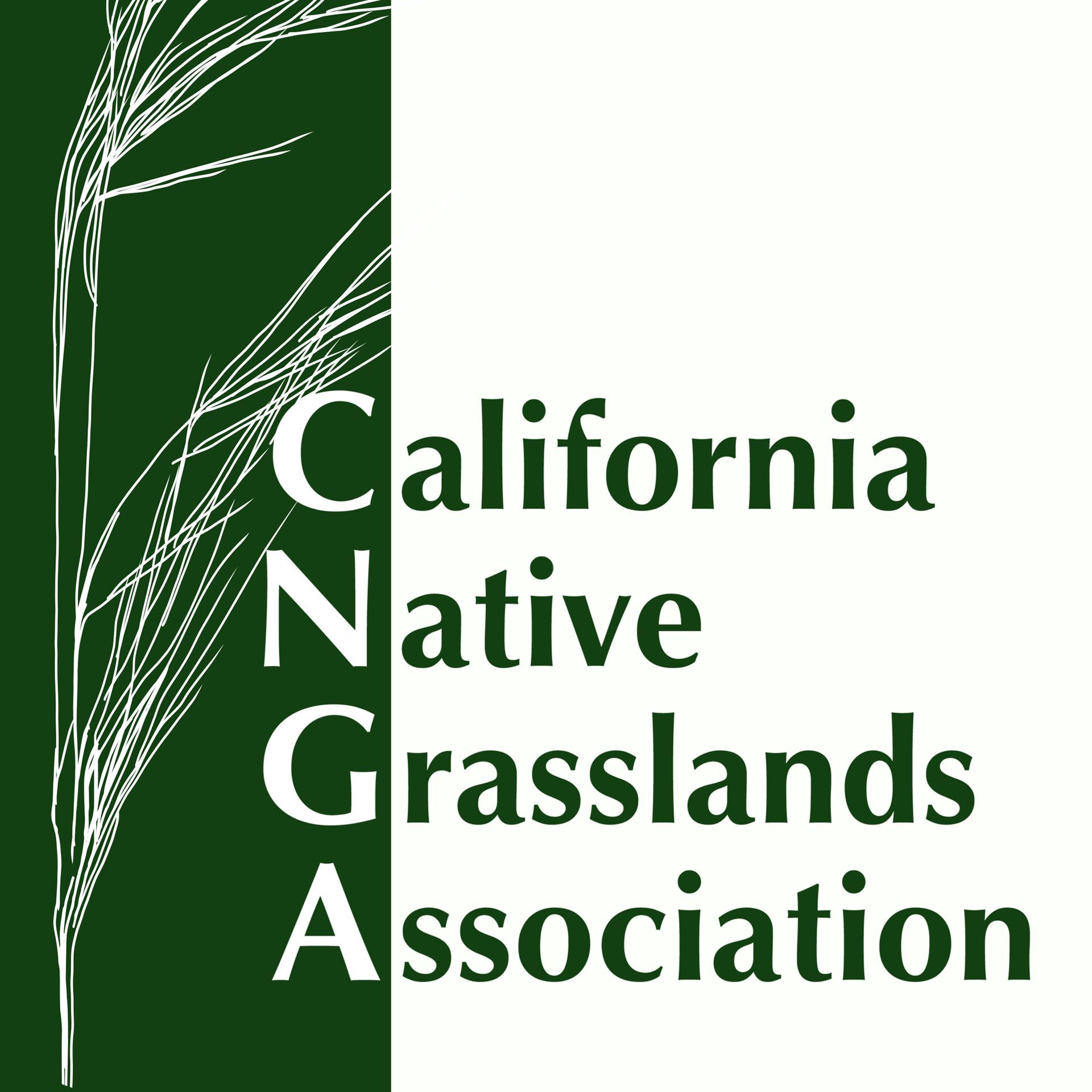
The Only Organization Working Exclusively to Conserve and Restore
California's Native Grasslands
Grassland Research Awards for Student Scholarship (GRASS)
Announcing the Class of 2023
Support the Next Generation of Grassland Researchers |
Congratulations to CNGA's 2023 Student Research Award RecipientsHere they are (in alphabetical order): |
| Ava-Rose Beech, 2023 GRASS Recipient UC Davis Project Title: Assessing compost application and grazing management in California rangelands: Impacts on soil microbial ecology and drought resistance Read more about Ava-Rose BeechI am a first year PhD Student in Ecology, studying under Leslie Roche in the UC Rangelands Lab. I am studying soil ecology and drought resilience in rangeland ecosystems. I am specifically excited about understanding how rangeland management practices can help ranchers cope with difficult challenges related to climate change including water scarcity, wildfire, increased temperature, and invasive species. I am currently studying how compost applications in rangelands impact soil microbial diversity, and drought resilience. I am passionate about engaging in applied research that is directly impactful to ranchers, and I love engaging in science education and community outreach. |
| Natan Euol, 2023 GRASS Recipient UC Davis Project Title:The New Home for Native Plants and Pollinators: The Social and Environmental Impacts of Green Roofs on Urban Communities Read more about Natan EuolHello! My name is Natan Euol, and I am a 3rd year Community & Regional Development major at UC Davis. My research studies the social and ecological benefits of California Native Grassland Green Roofs and their overall environmental success. The results of which can inform future decisions regarding seed mixes, types of irrigation, and methods of data collection, both for our green roof and other urban green spaces. I aspire to be an urban planner, with the goal of understanding the intersectionality between sustainability and our built environment. A fun fact about me is that I am an LA native and a die-hard Celtics fan; if you ask why, it’ll make less sense. |
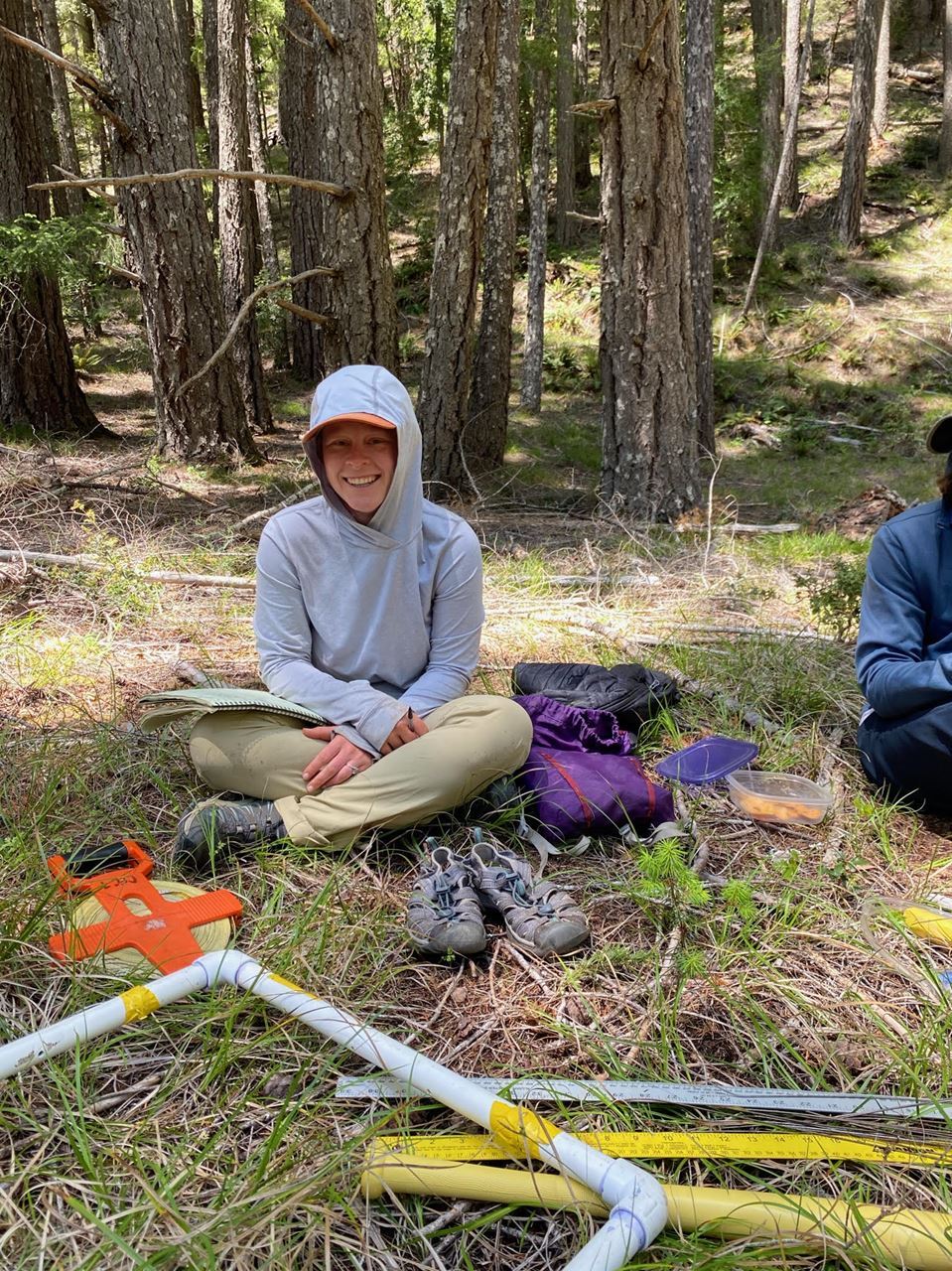 | Melissa Grim, 2023 GRASS Recipient* UC Davis Project Title: The role of fire and functional frameworks in restoring oak savanna understory *This project was taken over by Brooke Wainwright and Alana Luzzio. Read more about Melissa GrimMy research primarily focuses on terrestrial-aquatic interactions, but with the help of Hands On the Land I will be participating in research conducted at the McLaughlin Natural Reserve studying the interactions between fire management and restoration of an oak savannah understory.
|
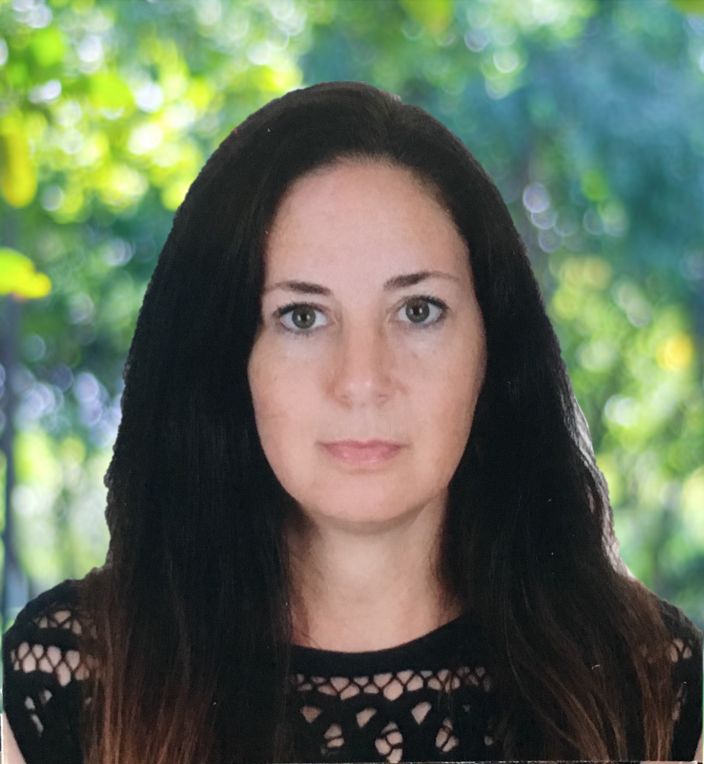 | Deborah Nardo-Ayala, 2023 GRASS Recipient Texas A & M Project Title: Improved salt tolerant perennial grass development at Salton Sea Read more about Deborah Nardo-AyalaDeborah Nardo-Ayala is an Environmental Scientist. She is a Doctoral Candidate at Texas A&M in Soil and Crop Sciences, researching improved salt-tolerant perennial grass development. Her focus is on habitat restoration and plant pathology in degraded environments. She holds a Master's in Agriculture Science and a Bachelor's in Plant Science with minors in Soil Science and Pest Management from Cal Poly Pomona. Deborah is a field scientist for the California Department of Food and Agriculture, where she assesses plant and soil pests and diseases. She also consults on phytoremediation projects across the state. |
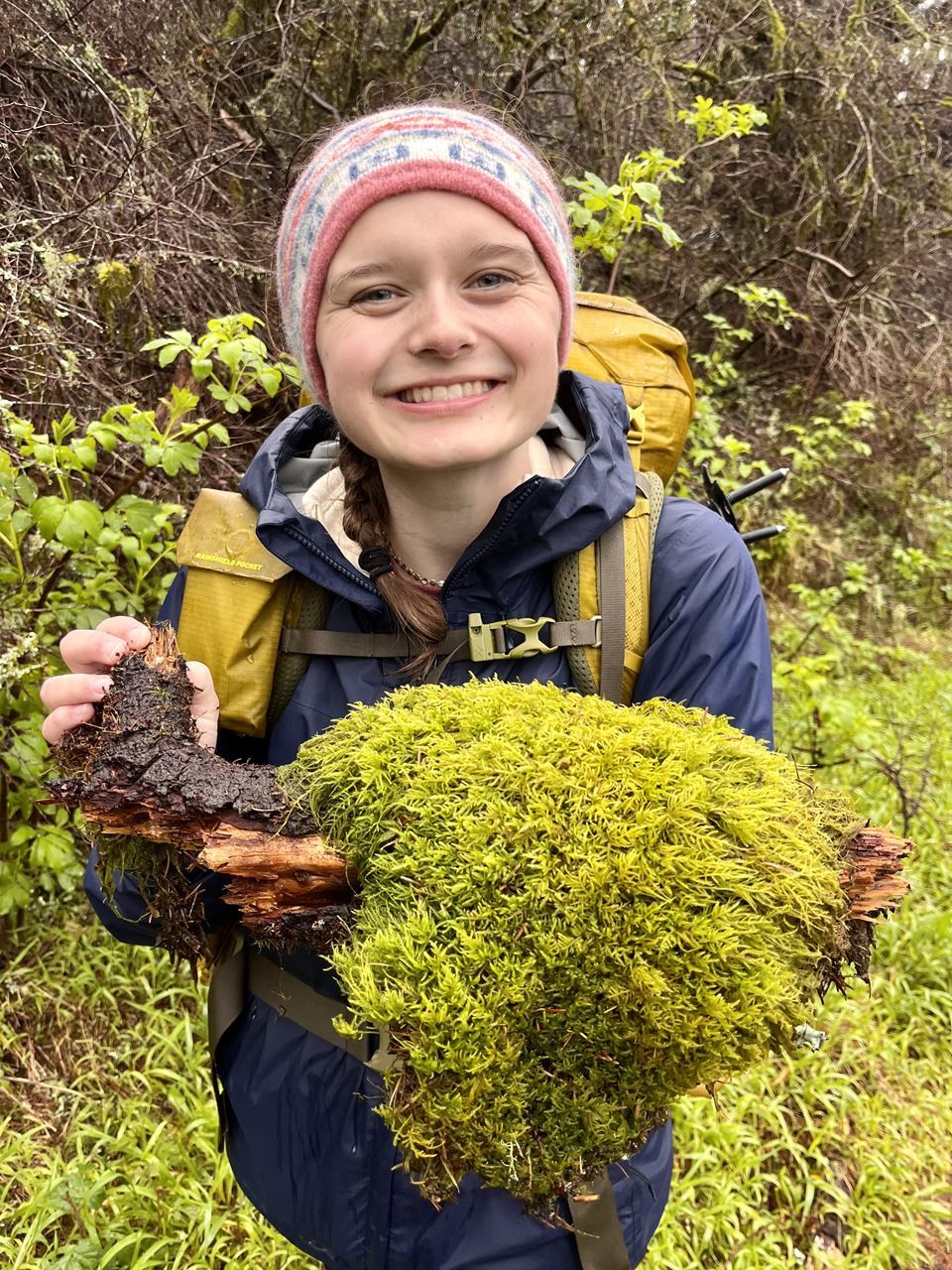 | Summer Santich, 2023 GRASS Recipient UC Davis Project Title: A future for ecological urbanization Read more about Summer SantichHi! My name is Summer Santich, and I am a Second Year Landscape Architecture major at UC Davis. My research studies the growth of California native grassland plants on green roofs, the relationship between the green roof and pollinators such as bees, hummingbirds, and butterflies, as well as the social relationship between people and the roof. The research aims to study alternatives to California grassland restoration in urban landscapes and understand the social relationship between the two. During my free time, I love to hike, camp, run, and sketch, as well as play with my dogs and sisters. |
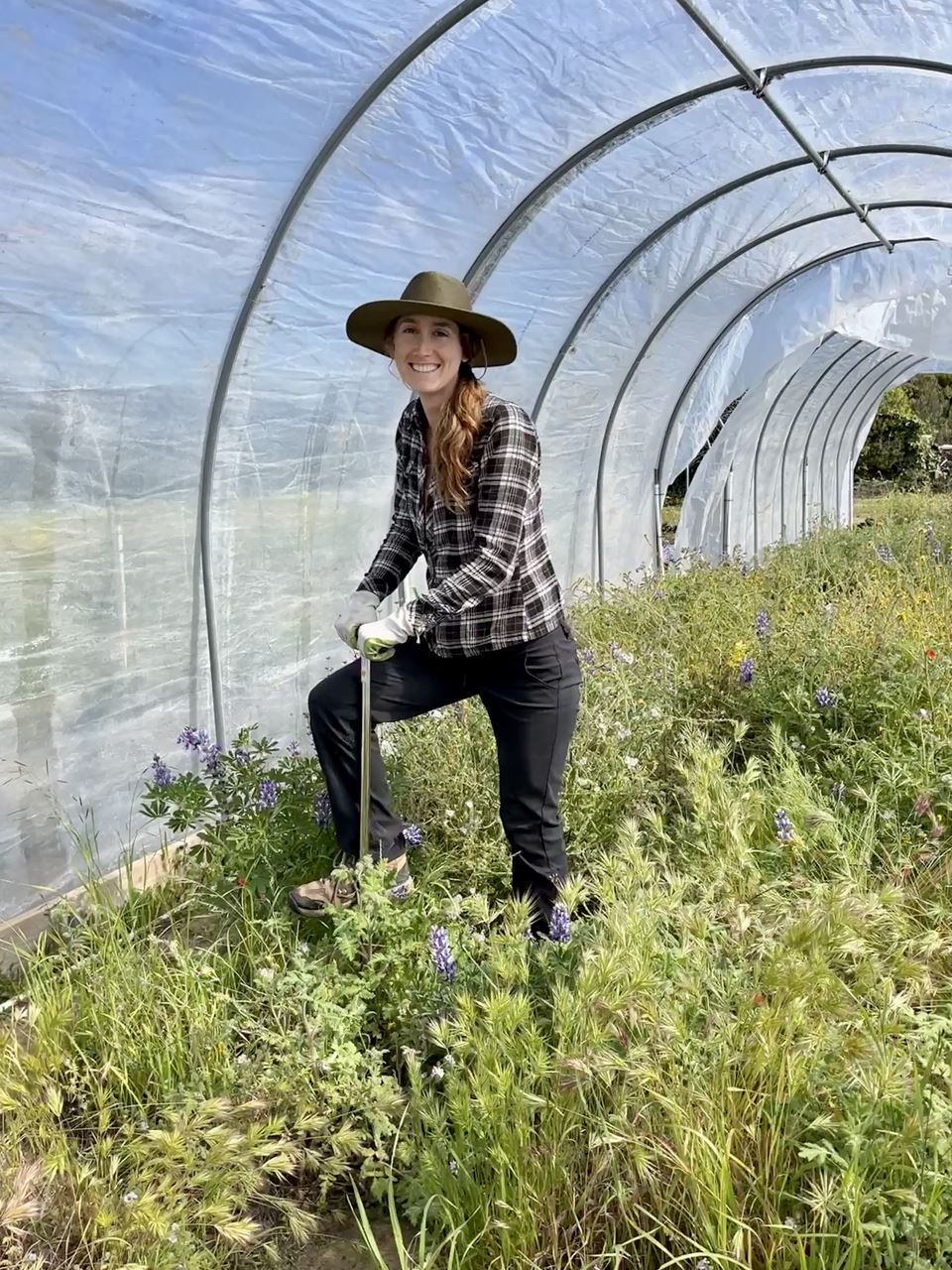 | Laurel Sebastian, 2022/2023 GRASS Recipient UC Davis Project Title: Tracking tradeoffs and synergies: carbon sequestration across three grassland restoration designs Read more about Laurel SebastianI’m a second year MS student studying restoration ecology in the Graduate Group in Ecology at UC Davis. I hope to identify restoration strategies that support soil carbon sequestration in California grasslands. Leveraging an experiment that used plant traits (e.g., root depth) to optimize either drought tolerance, invasion resistance, or diversity, I will test whether any of those restoration goals exhibit tradeoffs with soil carbon. Across restoration treatments, I hope to identify traits or species that can support carbon sequestration and other restoration goals simultaneously. Furthermore, drought and invasive species treatments will help us understand how common environmental stressors may alter carbon sequestration processes. |
 | Jessica Solis, 2023 GRASS Recipient San Francisco State University Project Title: Investigating the Impact of Wildfire Disturbance and Microclimate on Carbon and Water Fluxes in a Coastal Fog-Influenced Grassland Ecosystem Read more about Jessica SolisI am a second year M.A. student at San Francisco State University studying geography with an emphasis in resource management and environmental planning. My thesis research aims to understand how coastal fog and wildfire disturbance impact carbon water fluxes in coastal grassland ecosystems. I hope that my research will advance our understanding of vegetation recovery post-fire and the associated carbon dynamics that are key to improve climate-adaptive land management. I am a San Francisco native and my passion for understanding how coastal fog influences native plant communities has been driven by my long-term observations of fog declining along the California coast. |
| Annalise Taylor, 2023 Grass Recipient UC Berkeley Project Title: Good fire: Impacts of controlled and cultural burning on diversity and abundance of Amah Mutsun food and Medicine plants in coastal grasslands Read more about Annalise TaylorAs a PhD Candidate at the University of California Berkeley, I’m partnering with the Amah Mutsun Tribal Band of California's Central Coast to study the ecological impacts of Indigenous stewardship practices with innovative geospatial tools. I’ve worked extensively in Google Earth Engine, a powerful remote sensing API, to study ecosystem change over time and space. I'm currently working to track the impacts of Amah Mutsun cultural burning on the landscape, and mapping culturally important plants. Broadly, I aim to apply my skills in remote sensing, ecology, and GIS to promote environmental justice and Indigenous sovereignty. I also love designing and leading Earth Engine workshops, and I hope to make this incredible tool accessible and exciting for all people, and particularly people who are traditionally excluded from programming communities.
|
| Jennifer Valadez, 2023 GRASS Recipient UC Santa Cruz Project Title: What is the spatial and temporal variability of soil carbon storage after grassland restoration? Read more about Jennifer ValadezUnder construction |
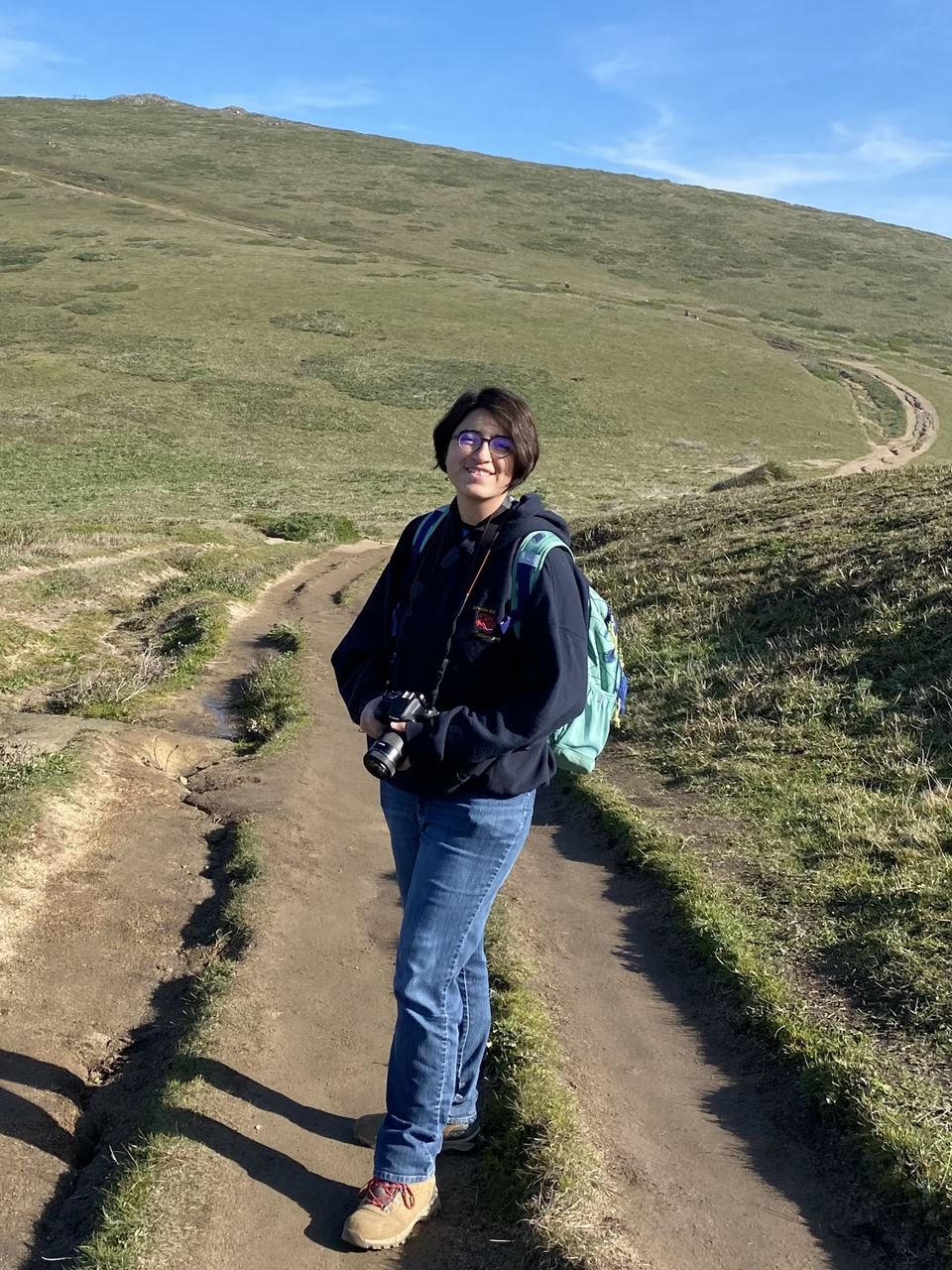 | Sabella Vasquez-Rey, 2023 GRASS Recipient UC Davis Project title: Impact of Livestock Management and Grazing Intensity on Avian Taxonomic and Functional Diversity in Montane Riparian Meadows within California’s Federal Public Lands Read more about Sabella Vasquez-ReyI am a master’s student in Dr. Leslie Roche’s lab at the University of California, Davis. After completing my bachelor’s degree, I have been privileged to research multiple ecosystems and to work with fascinating wildlife species, including monitoring piping plovers and least terns in Colorado’s grand grasslands; studying sage thrashers, sagebrush sparrows, and brewer’s sparrows in Wyoming’s vast sagebrush shrublands; and observing barn swallows in Colorado’s ranching communities. Currently, I am interested in studying how local land management strategies and livestock grazing pressure are impacting avian communities at a taxonomic and functional level across grazing allotments managed by the U.S. Forest Service in the Sierra Nevada region, with an emphasis on sites with montane riparian meadows. In the Sierra Nevada, montane meadows are essential ecosystems that provide benefits to both biodiversity and human society; thus, their conservation is of utmost importance if we wish to maintain major ecosystem functions and services. With this study, I aim to determine the relationship between the conditions of montane meadows and wildlife communities. Additionally, I hope to develop the technical skills and qualifications necessary to become a wildlife biologist for a state or federal agency and learn new ways of tackling natural resource dilemmas that are becoming more prevalent in the Anthropocene epoch. |
| Brooke Wainwright, 2022/2023 GRASS Recipient UC Davis Project Title: Proposing a novel drought-response trait framework for California grasslands and beyond Read more about Brooke WainwrightBrooke is a second-year PhD student at the University of California, Davis investigating how California grassland species, both native and nonnative, cope with drought by modifying their traits. She received her master’s degree from the University of New Mexico in 2021 and studied the recruitment dynamics of desert grassland species under various climate change regimes. She is passionate about learning about and teaching others about the diverse California flora. Her goal is to use science to inform land management and have a positive effect on the way humans interact with their natural landscape. |
Invest in the Next Generation of Grassland Managers by Supporting Student Researchers
Help Us Encourage and Support the Next Generation of Grassland Researchers |


